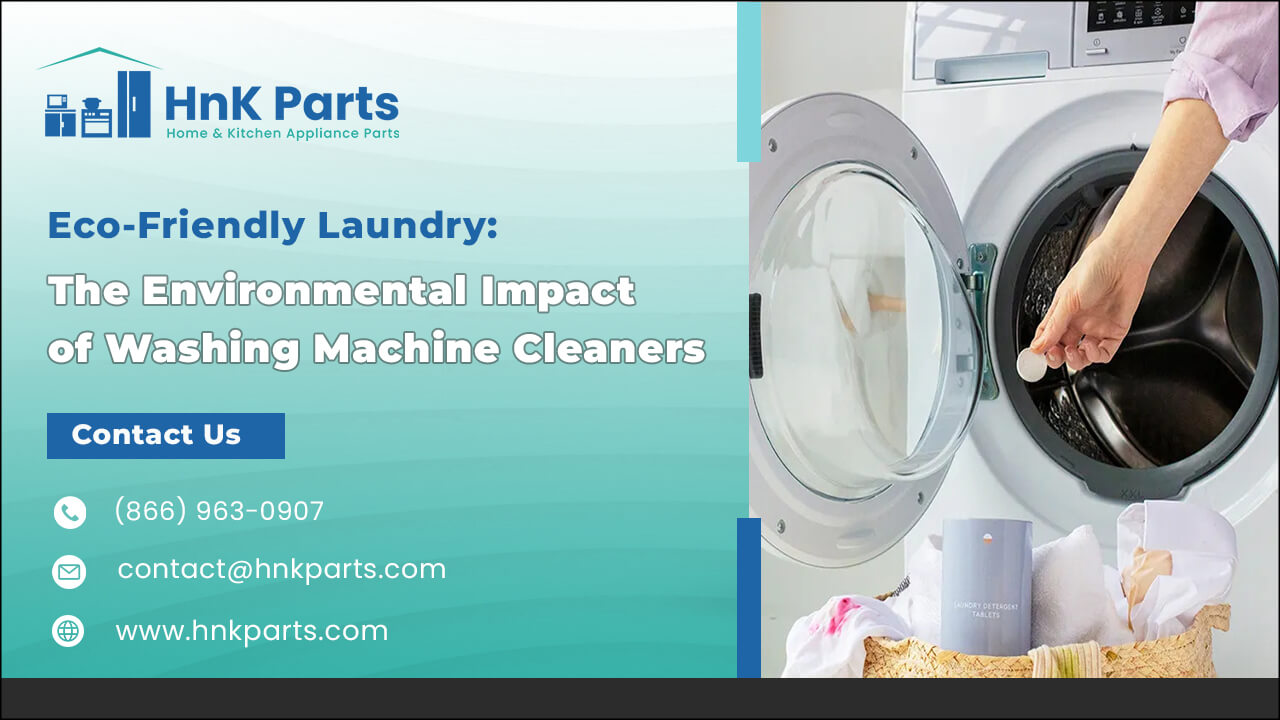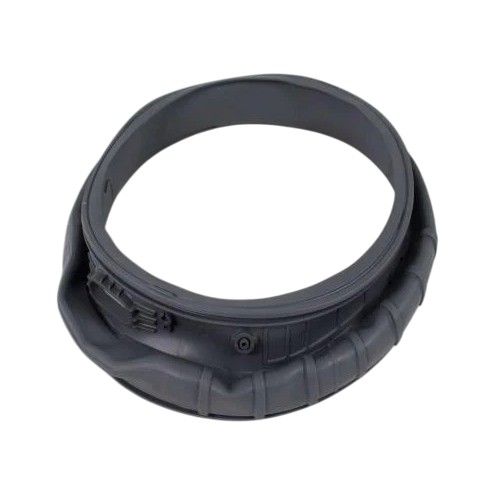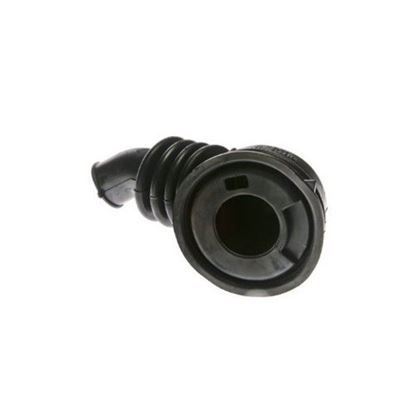
Eco-Friendly Laundry: Impact of Washing Machine Cleaners
Laundry activities play a crucial role in our daily lives, but they also have a significant environmental impact. Embracing eco-friendly practices in laundry is essential to minimize this impact and promote sustainability. By adopting eco-conscious approaches, individuals can contribute to resource conservation, reduce pollution, and support a healthier planet.
Washing machine cleaners are commonly used to maintain the cleanliness and performance of washing machines. However, it is important to consider the environmental implications of these cleaners. Understanding the ingredients, packaging, and disposal methods of washing machine cleaners is vital to making informed choices that align with eco-friendly practices. Balancing the need for effective cleaning with environmental responsibility is key to promoting sustainable laundry habits.
| Table of contents: Understanding conventional washing machine cleaners Environmental benefits of eco-friendly washing machine cleaners Ingredients to look for in eco-friendly cleaners Case studies: eco-friendly washing machine cleaner brands Tips for sustainable laundry practices |
Understanding conventional washing machine cleaners
Washing machine cleaners are designed to remove residues, odors, and buildup in washing machines, ensuring optimal performance and cleanliness. However, it's important to be aware of the ingredients commonly found in this commercial laundry equipment and their potential environmental implications.
Common ingredients and their environmental implications
- Surfactants: Surfactants, such as alkylphenol ethoxylates (APEs), are commonly used in detergents and dry cleaners. APEs, when released into water systems, can pose a risk to aquatic life by disrupting hormone function and affecting reproduction.
- Fragrances: Fragrances often contain synthetic chemicals that can contribute to air and water pollution. Some fragrance compounds may be persistent in the environment and can potentially impact ecosystems and aquatic organisms.
- Phosphates: Phosphates, used as water softeners and for their cleaning properties, can contribute to eutrophication when discharged into water bodies. Eutrophication can lead to harmful algal blooms and oxygen depletion, negatively impacting aquatic ecosystems.
- Chlorine Bleach and Oxidizing Agents: Chlorine bleach and other oxidizing agents can be harmful if released into waterways, affecting aquatic life and altering the chemistry of water bodies.
Impact of chemical residues on waterways and ecosystems
The residues from conventional washing machine cleaners can find their way into wastewater systems and eventually into natural waterways. Once in the environment, these chemicals can have several detrimental effects:
- Water contamination: The release of chemicals can contaminate water sources, affecting the quality of water and potentially harming aquatic life.
- Ecosystem disruption: Chemical residues can disrupt aquatic ecosystems, impacting biodiversity and the health of interconnected habitats.
Consumer awareness of the environmental impact
Consumers must be aware of the environmental impact of conventional washing machine cleaners. By understanding the potential repercussions of using these products in commercial laundry service, consumers can make informed choices and seek out eco-friendly alternatives. Increased awareness can prompt individuals to prioritize products that are gentle on the environment while effectively maintaining their washing machines.
Checkout: Laundry Made Easy: Top Picks for the Best Washers and Dryers
Environmental benefits of eco-friendly washing machine cleaners
|
Environmental benefit |
Description |
|
Biodegradable and non-toxic formulations |
Formulated with biodegradable and non-toxic ingredients, eco-friendly washing machine cleaners minimize the release of harmful chemicals into waterways, supporting water quality and aquatic life by reducing pollution and preserving ecosystems. |
|
Non-toxic ingredients help preserve ecosystems by reducing the likelihood of harm to aquatic organisms and their habitats. |
|
|
Reduced carbon footprint throughout the product lifecycle |
Eco-friendly cleaners are designed to minimize environmental impact at every stage of their lifecycle, including production, usage, and disposal. |
|
Sustainable sourcing of raw materials reduces the environmental impact of resource extraction, while energy-efficient manufacturing processes contribute to a reduced carbon footprint. |
|
|
Minimal and recyclable packaging reduces waste and environmental strain throughout the product's lifecycle, further lowering the carbon footprint associated with packaging materials. |
|
|
Preservation of water quality and aquatic ecosystems |
Eco-friendly formulations minimize the risk of contaminating water sources, preserving water quality and safeguarding aquatic ecosystems from pollution. |
|
By minimizing the release of harmful chemicals, eco-friendly cleaners support the health and diversity of aquatic life, contributing to the preservation of aquatic ecosystems and biodiversity. |
Ingredients to look for in eco-friendly cleaners
When seeking eco-friendly washing machine cleaners, it's crucial to prioritize formulations that contain environmentally responsible ingredients. Here are some key components to look for in eco-friendly laundry machine cleaners.
|
Ingredient |
Description |
|
Plant-based surfactants |
Derived from renewable sources, plant-based surfactants offer effective cleaning power without harming the environment. |
|
Biodegradable fragrances |
Fragrances derived from natural sources ensure a pleasant laundry experience while being biodegradable and environmentally responsible. |
|
Phosphate-free formulations |
Phosphate-free formulations prevent water pollution and eutrophication, supporting the health of aquatic ecosystems. |
|
Non-toxic preservatives |
Non-toxic preservatives maintain product quality without introducing harmful chemicals into the environment, ensuring safety for users and ecosystems. |
|
Natural cleaning agents |
Natural cleaning agents like citric acid, baking soda, and vinegar provide effective cleaning solutions while being safe for the environment |
Case studies: eco-friendly washing machine cleaner brands
General Electric
- Eco-Friendly Initiatives: General Electric (GE) has been at the forefront of sustainability efforts, including the development of eco-friendly top load washing machine cleaners. They have recognized the importance of promoting environmentally responsible practices in laundry care.
- Biodegradable Formulations: GE's laundry machine cleaner eco friendly products are formulated with biodegradable ingredients that are gentle on the environment while effectively cleaning and maintaining commercial laundry machine accessories.
- Reduced Carbon Footprint: GE emphasizes energy efficiency in its manufacturing processes, reducing the carbon footprint throughout the product lifecycle. Their commitment to sustainability extends to packaging and waste reduction strategies.
Bosch
- Green Technology Leadership: Bosch is known for its commitment to green technology and eco-friendly solutions across its product range, including washing machine cleaners.
- Plant-Based Ingredients: Bosch washing machine cleaner brands often incorporate plant-based ingredients that are both effective in cleaning performance and environmentally sustainable.
- Promoting Water Conservation: Bosch prioritizes water conservation in its products, and their eco-friendly washing machine cleaners are designed to minimize water usage while maintaining optimal washing machine functionality.
- Consumer Awareness: Bosch actively educates consumers about the environmental benefits of using eco-friendly washing machine cleaners, encourages sustainable laundry practices, and promotes awareness of the impact of conventional cleaners on the environment.
Refer: 9 Best Portable Washing Machines Of 2024: Expert Guide
Tips for sustainable laundry practices
Incorporating sustainable laundry practices can significantly reduce environmental impact and promote a greener approach to clothing care.
Opt for eco-friendly washing machine cleaners and laundry detergents that are specifically formulated to minimize environmental impact. Look for products with biodegradable ingredients and minimal packaging to support sustainable laundering practices. Washing clothes in cold water reduces energy consumption and minimizes the environmental impact of laundry routines. Additionally, using energy-efficient settings, such as shorter wash cycles and lower water levels, helps conserve resources and reduce carbon footprint. Regularly clean and maintain washing machines to ensure optimal performance and longevity. Simple maintenance practices, such as cleaning the filter, checking hoses for leaks, and using laundry washer cleaner, are recommended. They can extend the lifespan of machines, and reduce the need for premature replacements.
Adopting sustainable laundry practices, including the use of eco-friendly detergents and cleaners, washing clothes in cold water, implementing energy-efficient settings, and prioritizing maintenance, is essential for promoting environmental stewardship and reducing the ecological impact of laundry routines. By making conscious choices and embracing eco-friendly products and practices, individuals can contribute to a more sustainable approach to clothing care and support the overall health of the planet.
FAQs
What is the environmental impact of traditional washing machine cleaners?
Traditional washing machine cleaners often contain harsh chemicals that can pollute waterways, harm aquatic ecosystems, and contribute to overall environmental degradation.
How do eco-friendly washing machine cleaners differ from industrial laundry machines?
Eco-friendly washing machine cleaners use biodegradable, non-toxic ingredients and promote sustainable sourcing and packaging, unlike industrial laundry machine cleaners, which may contain harmful chemicals and have a larger environmental footprint.
Are eco-friendly washing machine cleaners effective in removing dirt and grime?
Yes, eco-friendly washing machine cleaners are effective in removing dirt and grime, offering powerful dry cleaning performance while being gentle on the environment.
Can eco-friendly washing machine cleaners help reduce water and energy consumption?
Eco-friendly washing machine cleaners can help reduce water and energy consumption through their optimized formulations and support for eco-conscious laundry practices.
What is the best eco friendly laundry detergent?
The best eco-friendly laundry detergents often contain plant-based ingredients, are biodegradable, and are free from harsh chemicals











